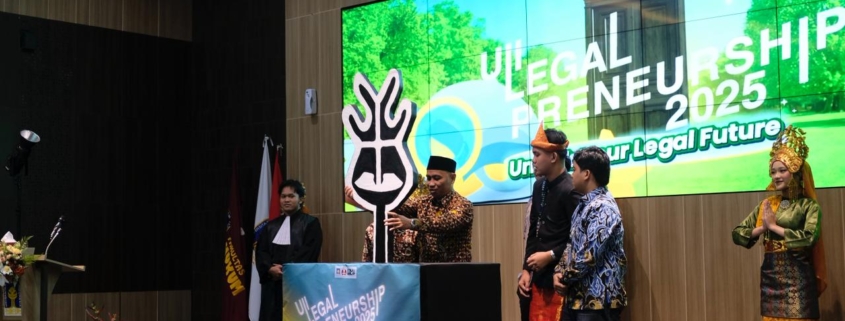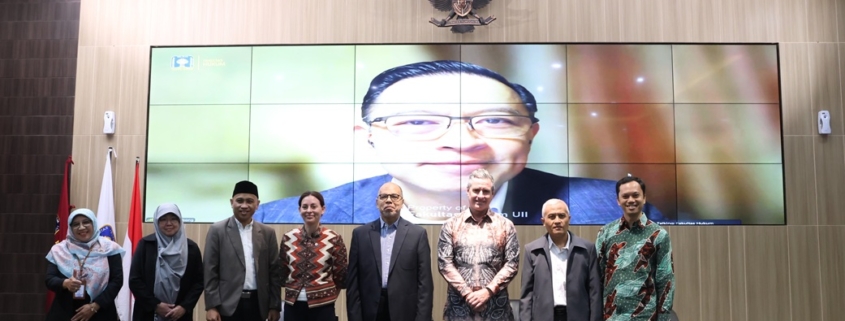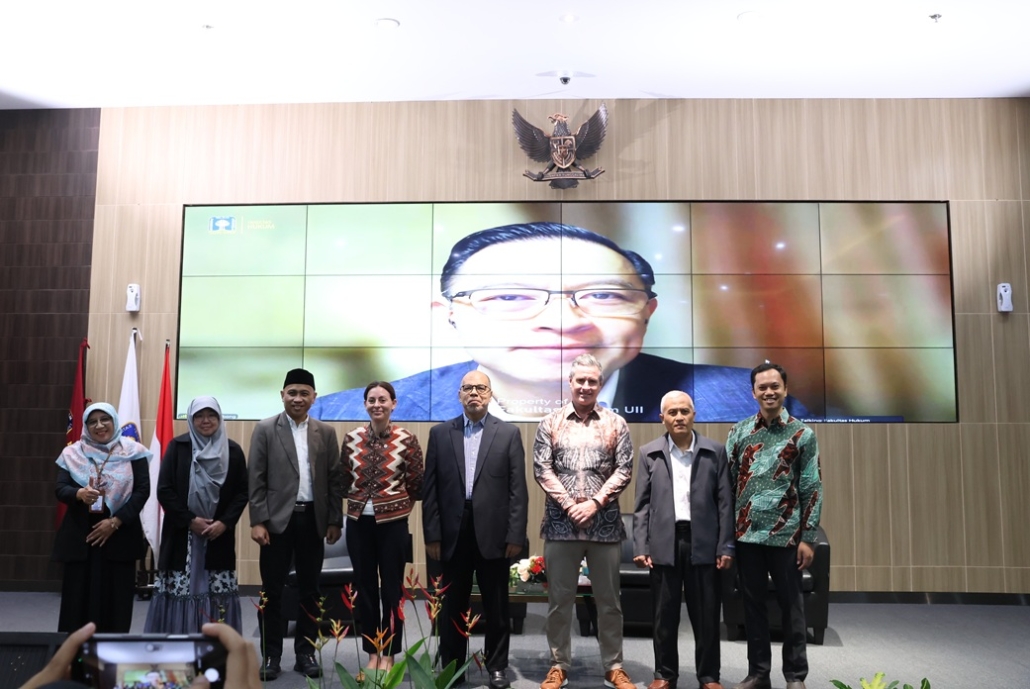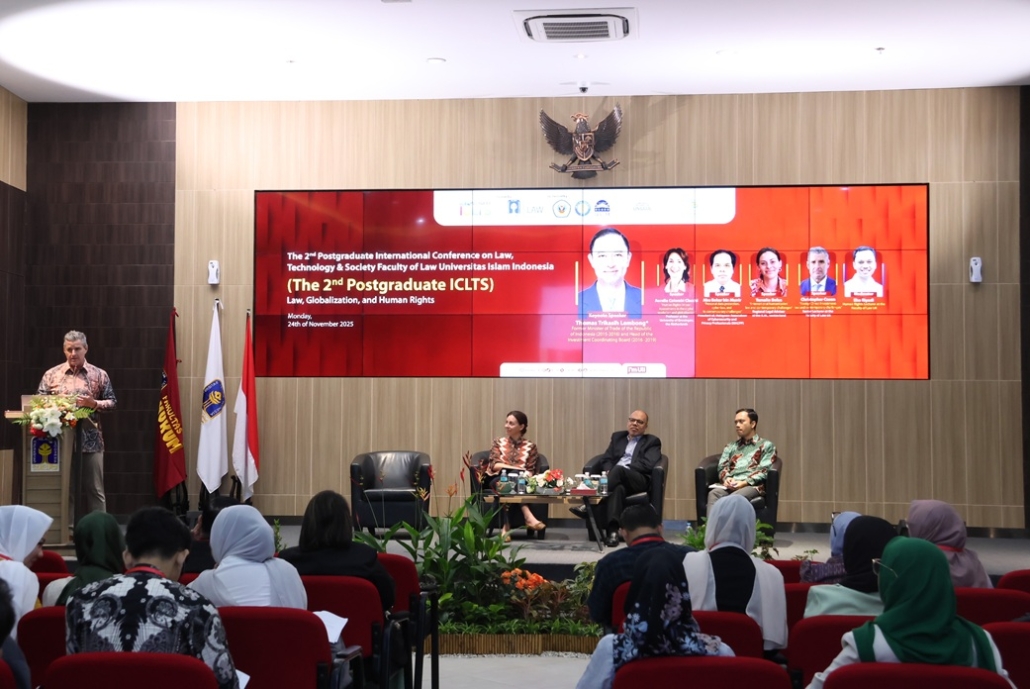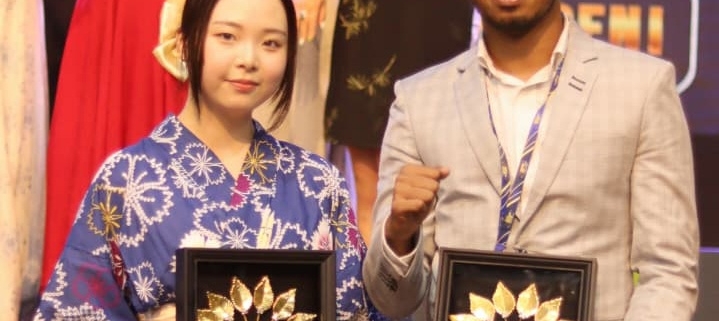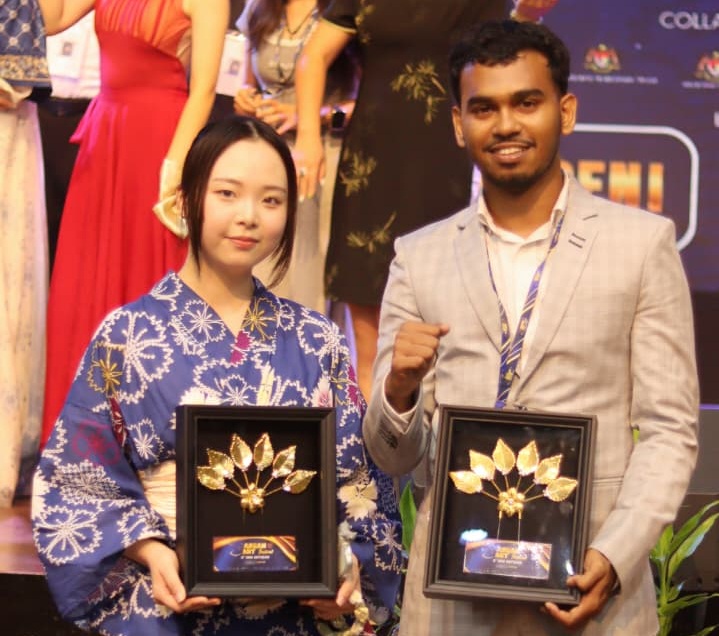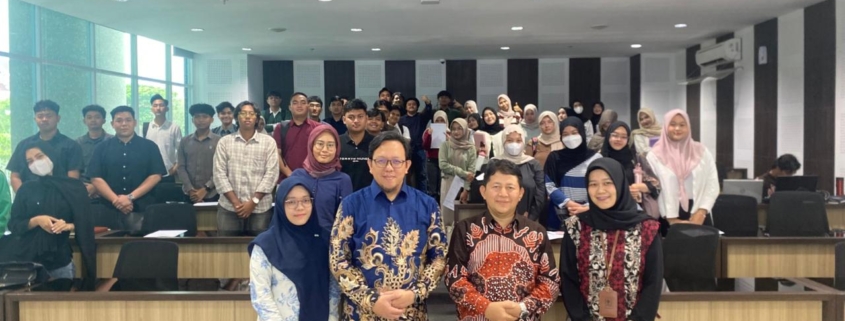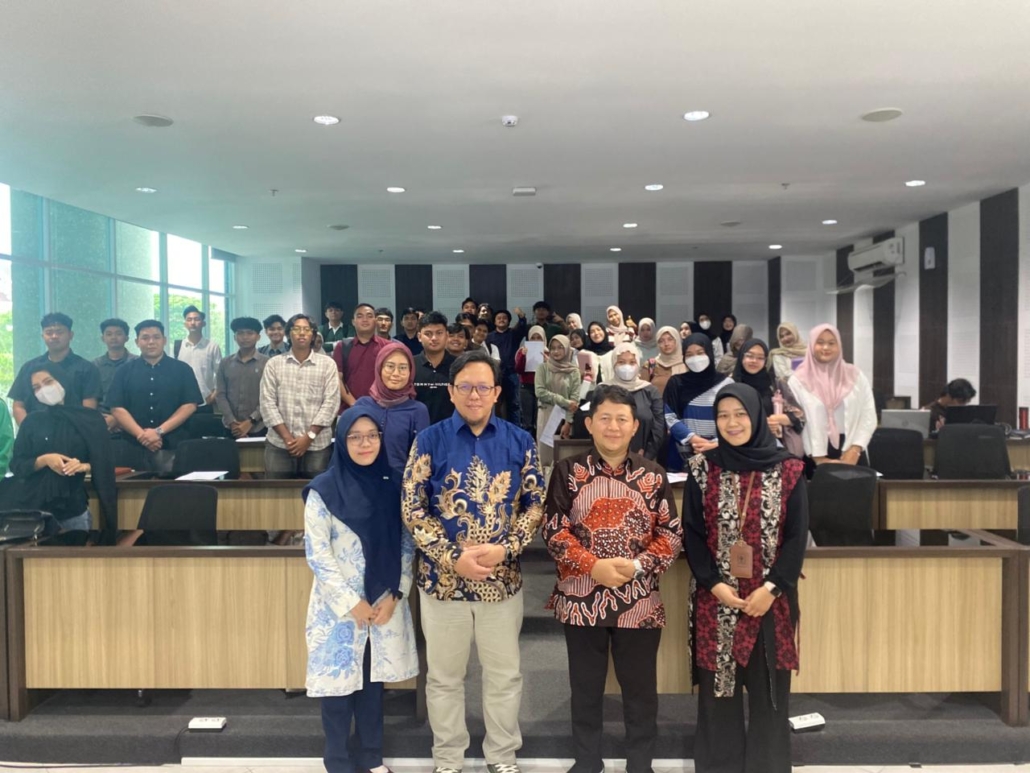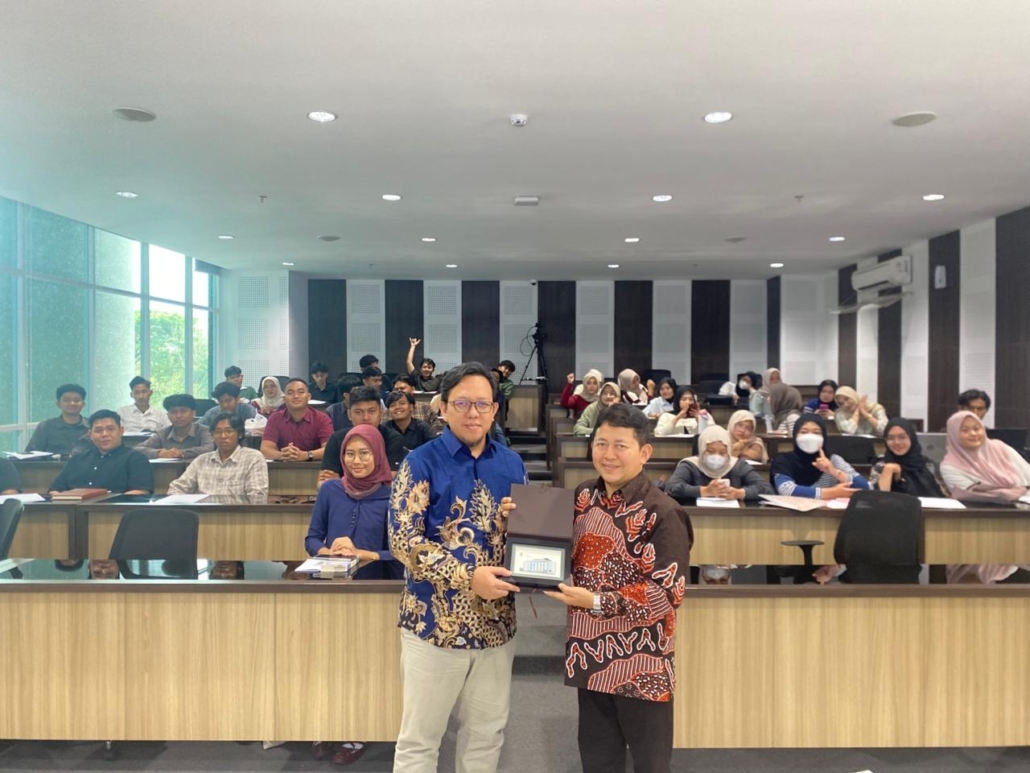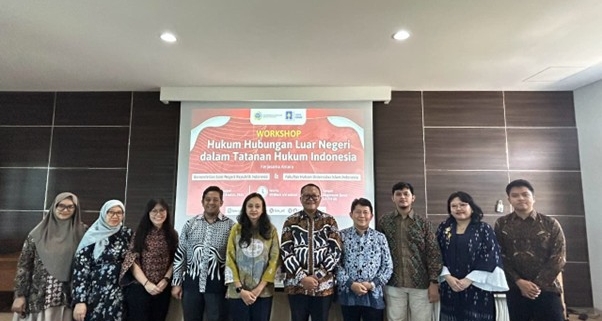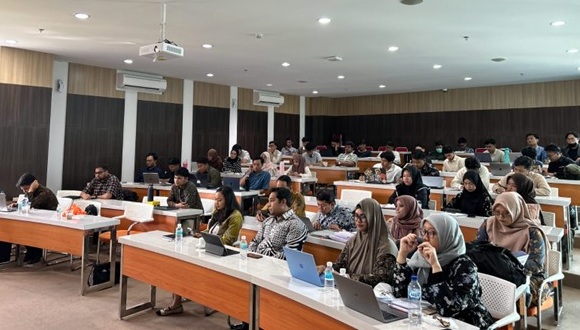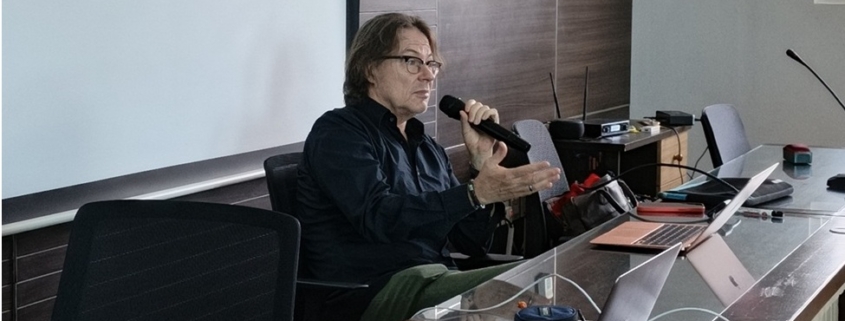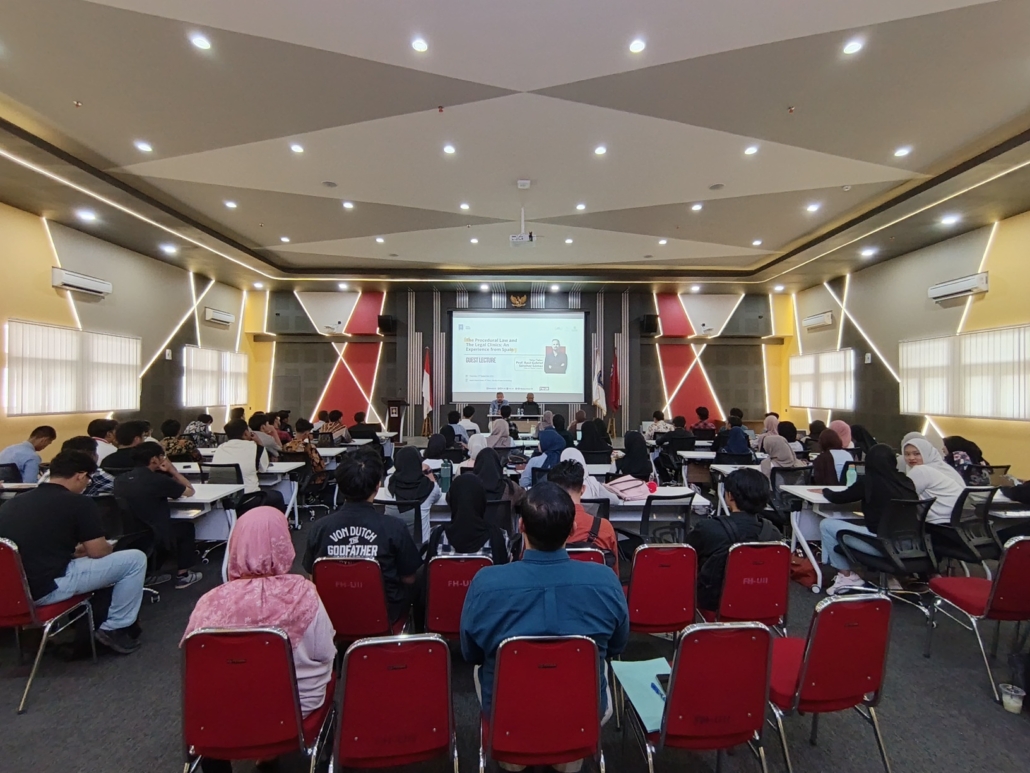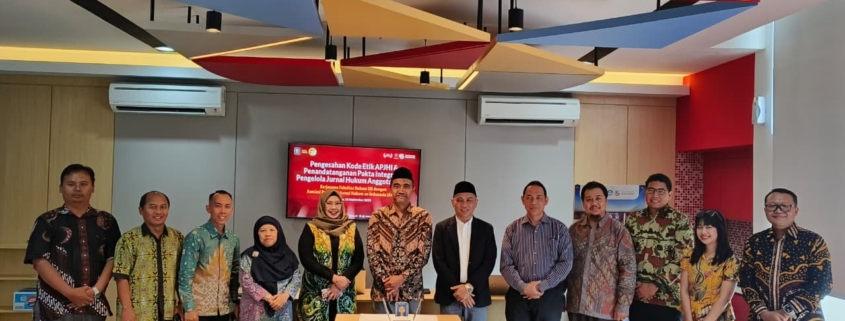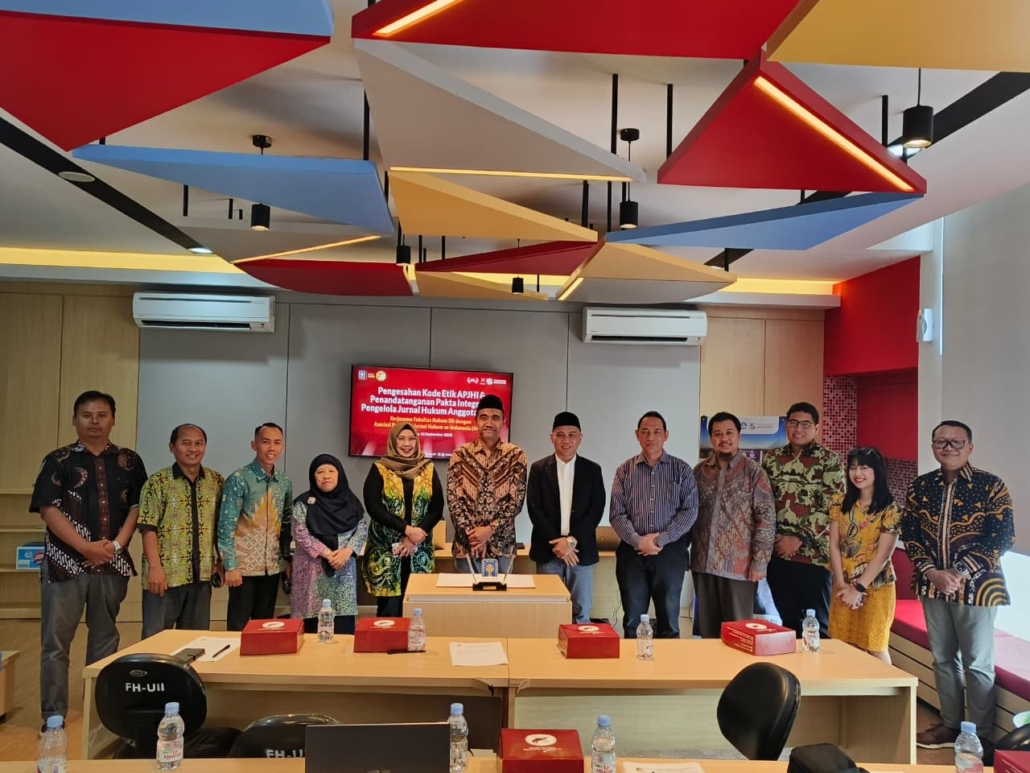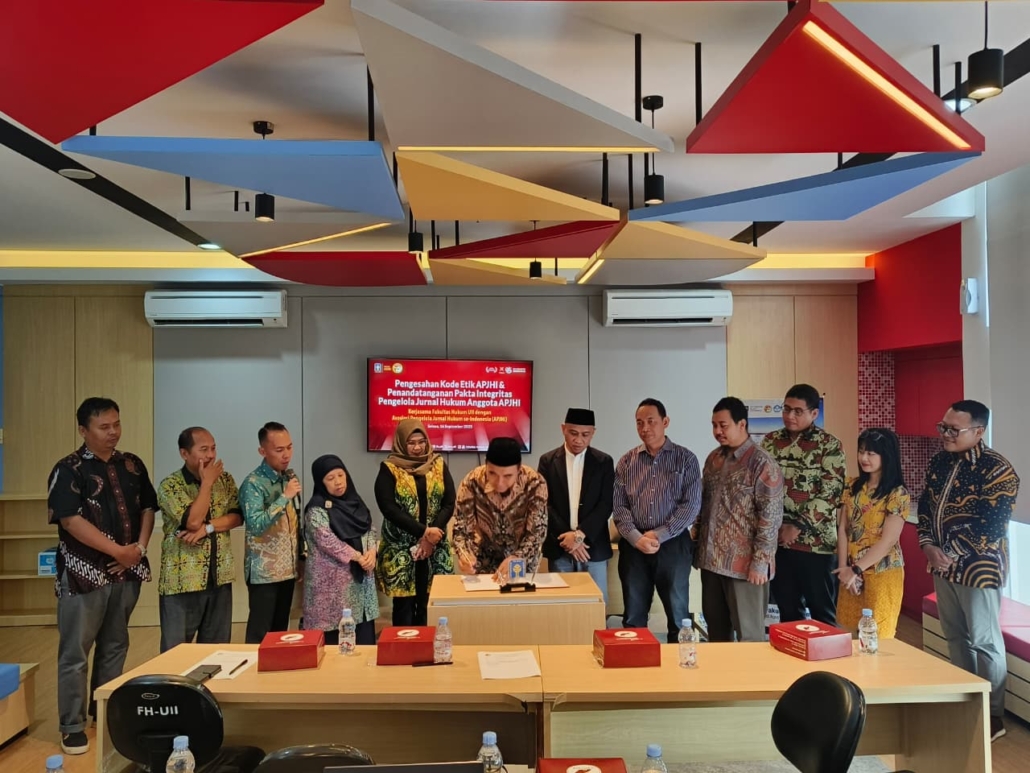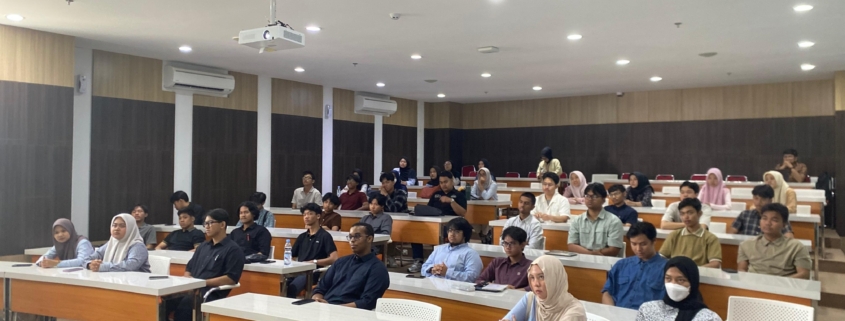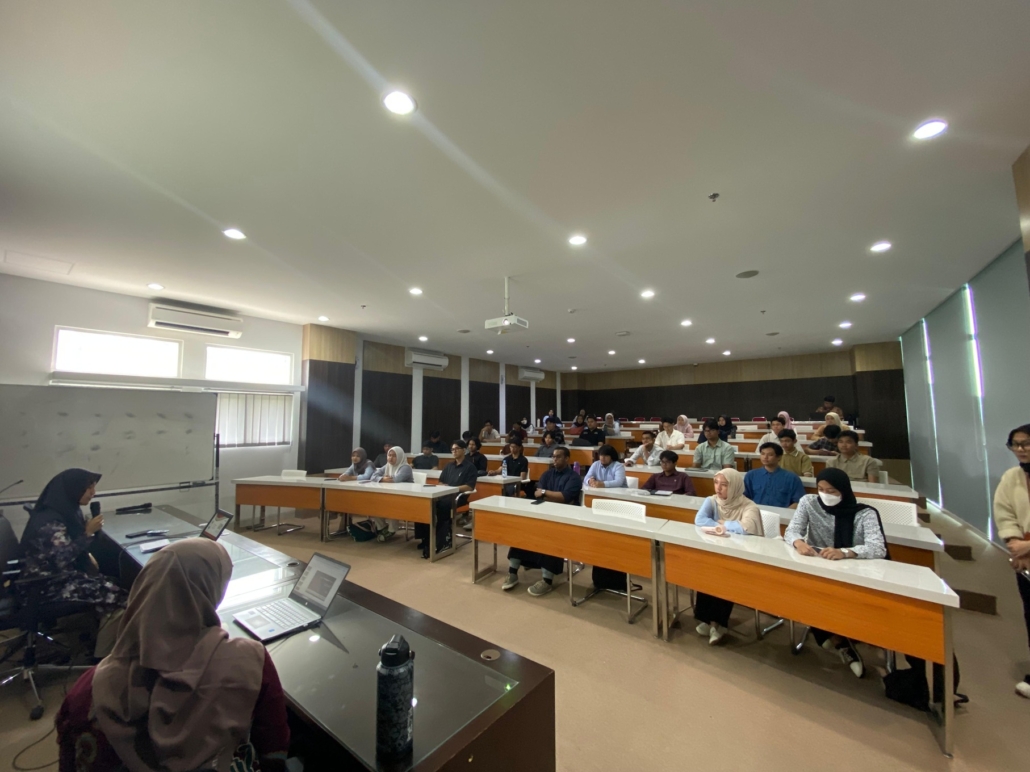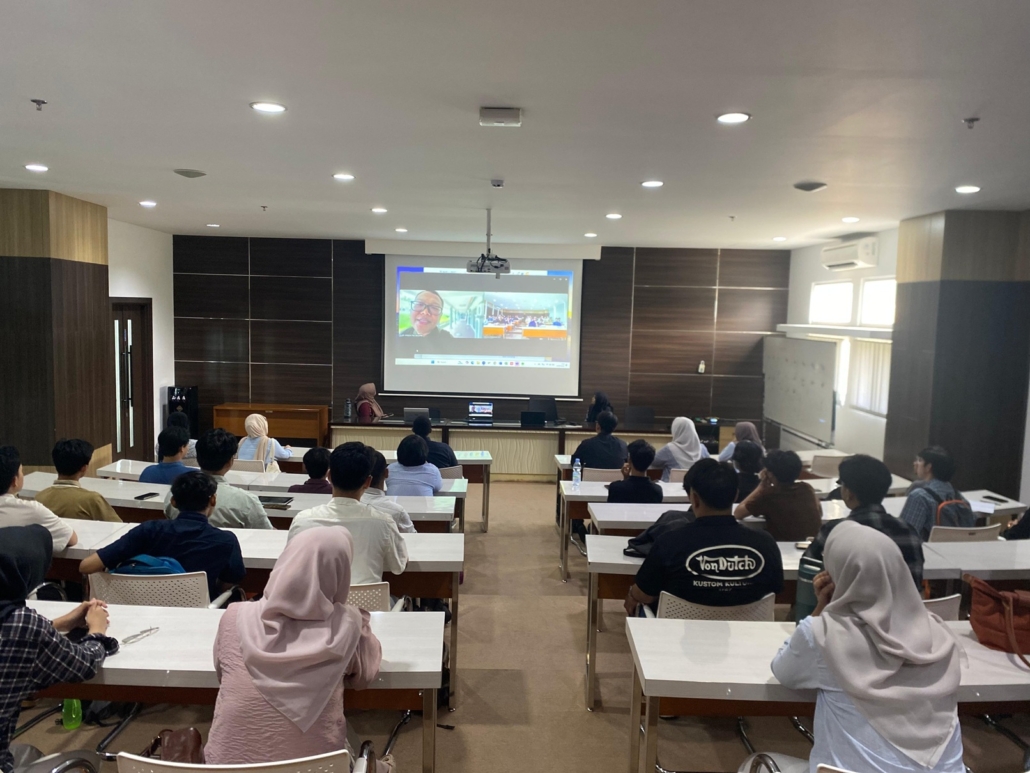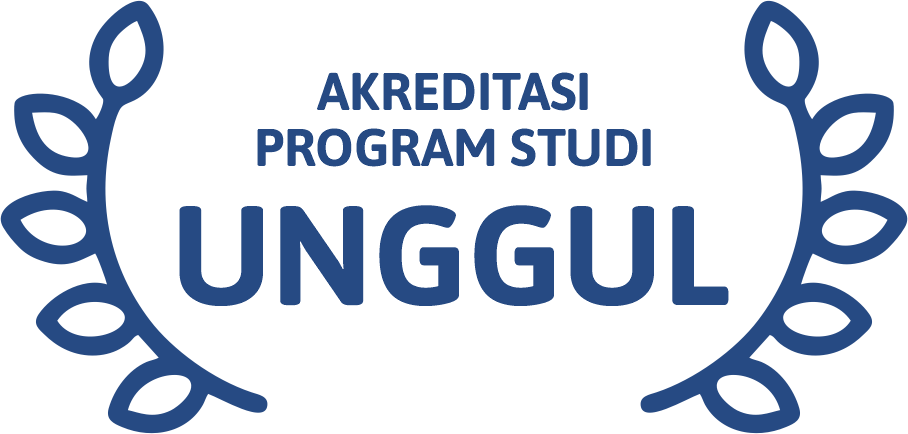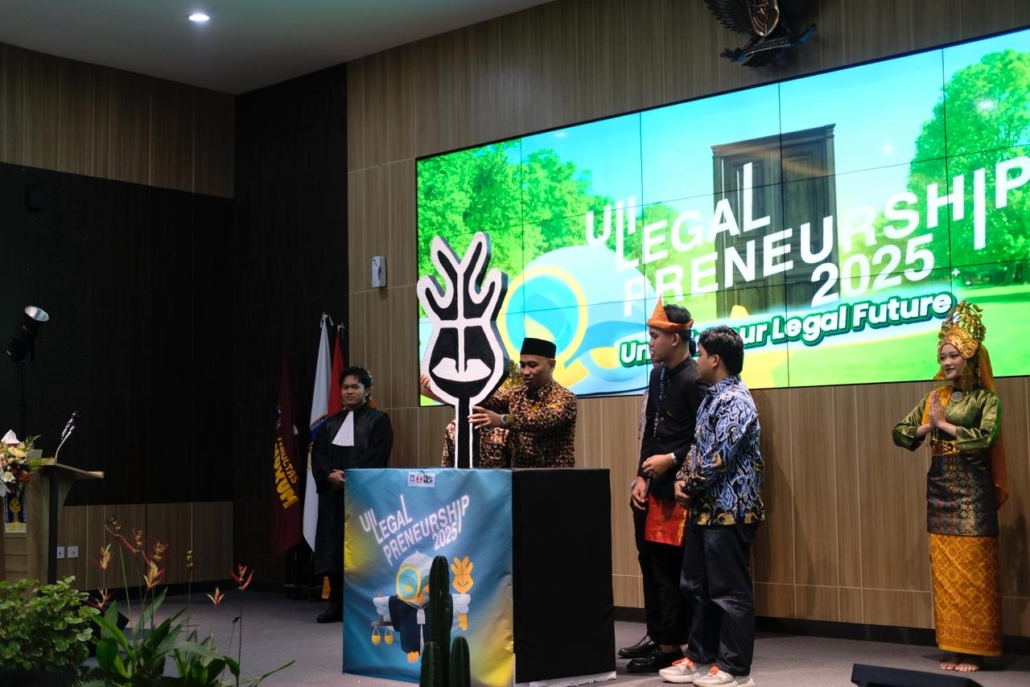
UII Legalpreneurship is a flagship program organized by the Career Development Department of LEM FH UII. This program provides a platform for students to build networks with legal practitioners, alumni, and various institutions in order to broaden their access to relevant information, experience, and career opportunities in the legal field. Through this activity, students are expected to be able to design their career paths in a more structured and directed manner with the support of strong professional connections and insights aligned with current workforce demands.
As a continuation of this commitment, the theme “Adapting to Society 5.0: Unlocking New Perspectives and Developing Adaptive Competencies for Future Legal Careers” was adopted to reflect the program’s dedication to preparing law students who are adaptive, responsive, and collaborative. This theme highlights the urgency of developing legal human resources who not only understand legal theory and practice but are also capable of actively participating in the dynamics of global change. Accordingly, the program is designed to shape participants’ mindsets and competencies so that they are not merely able to adapt to present conditions, but are also ready to face future challenges and opportunities in a more advanced era. This readiness includes the development of flexible skills, innovative insights, and a high level of adaptability in responding to the dynamics of the legal profession in the Society 5.0 era. Through this program, students are expected to strengthen their intellectual, emotional, and professional capacities in a comprehensive manner. This will serve as an essential foundation in shaping a future generation of jurists who are technologically literate, morally resilient, and visionary in contributing to national and global legal development.
The event was held over four days, from December 2 to December 5, 2025. The first day began with an opening ceremony and a symbolic inauguration at the 4th Floor Auditorium of the Faculty of Law, UII. The atmosphere became even more festive with a traditional Sumatran dance performance by Xaviera Unisi, symbolizing the opening greeting. The event continued with a keynote session delivered by the Director of the Directorate of Career Development and Alumni (DPKA UII), Mr. Allan Fatchan Gani Wardhana, S.H., M.H. He explained that the Society 5.0 era brings major changes to both lifestyle and working patterns, including in the legal field. Technologies such as artificial intelligence and big data are transforming the legal profession—not eliminating it, but shifting it toward a more strategic, analytical, and human–AI collaborative role. Therefore, law graduates must possess distinguishing advantages to compete at both national and global levels. DPKA UII also plays an important role in assisting students and alumni in preparing for these changes through career counseling services, mentoring, seminars, professional networking, and job vacancy information. In essence, the session emphasized the importance of adaptability, competency development, and career readiness in the ever-evolving digital era.
The event then continued with a Stadium Generale themed “Adaptive Legal Education: Character Building and Legal Competencies for Future Careers on the Path Towards Society 5.0,” delivered by Dr. Dodi S. Abdulkadir, B.Sc., S.E., S.H., M.H. He conveyed that in the Society 5.0 era, law must adapt because technology changes work patterns, objects of disputes, and law enforcement processes. Law graduates must master digital literacy, data analysis, digital ethics, and understand emerging issues such as privacy, data security, and technology regulation. Technology accelerates and enhances both legal education and practice, but it also presents challenges such as literacy gaps, ethical risks, and lagging regulations. Therefore, strengthening digital literacy, ethics, analytical skills, and technology-based learning is crucial.
On the second day of UII Legalpreneurship 2025, a Job Fair booth was held at the Hall/Lobby of the 1st Floor, Faculty of Law UII, featuring several companies and law firms, including LBH Yusuf, Sui Iuris Law Office, SNW & Partner, JRJ Law Firm, Law Is Me Law Firm, Firmly Law Firm, Cilacs, IONs Educational International, and DPKA UII. The event became even more lively with Company Profile sessions, allowing students to interact directly and obtain detailed information from each company and law firm. In addition, the event was enhanced by a free LinkedIn Photo Session booth provided by the UII Legalpreneurship 2025 Committee, which students could use to obtain formal or semi-formal photos for their LinkedIn profiles or Curriculum Vitae (CVs).
DPKA UII also provided free career consultation services with professional psychology counselors. After these counseling sessions, students were expected to be able to determine their career paths based on their interests, talents, and skills. Meanwhile, on the 3rd Floor in the Legal Drafting Room, two workshop sessions were conducted. The first was “Legal Drafting Workshop: Developing Systematic, Legitimate, and Efficient Legal Documents in the Era of Society 5.0,” presented by Dr. M. Rasyid Ridho, S.H., M.H. The second was “Legal Tech Workshop: Developing Adaptive Legal Proficiency within the Path to Society 5.0,” presented by Mr. Adam Mulyadi. These workshops were organized to equip FH UII students with the competencies needed in the modern era to prepare for future workplace challenges. Both workshops were conducted in collaboration with the Jimly School of Law and Government, enabling participating students to receive e-certificates directly from Jimly School, which can be used for future job applications and to strengthen their portfolios.
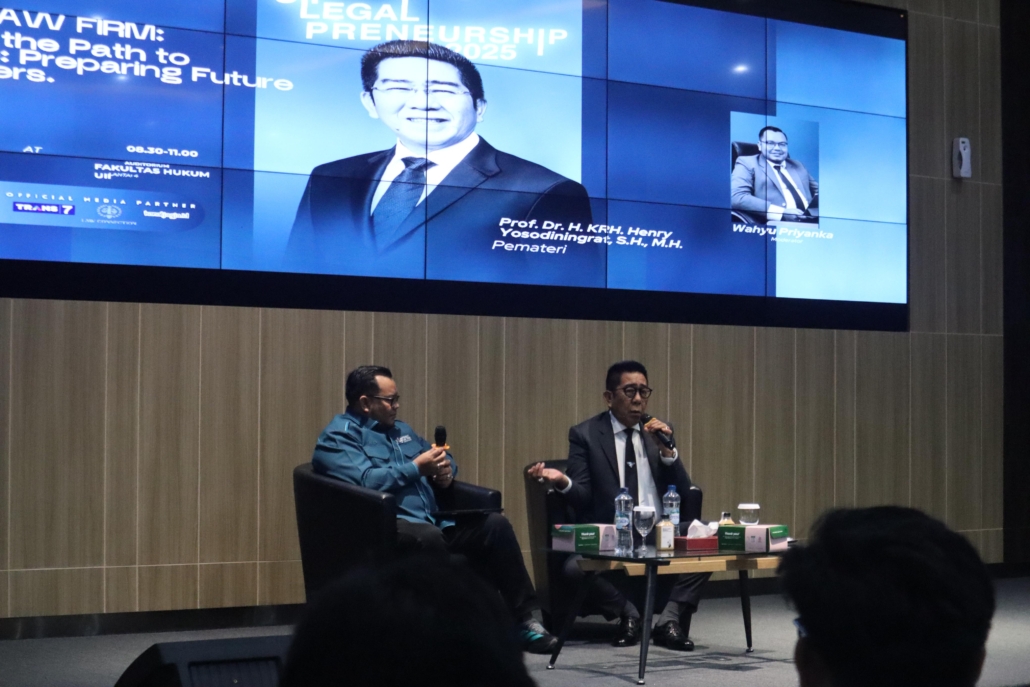
On the third day of UII Legalpreneurship 2025, the Job Fair booths, LinkedIn Photo Session, Career Consultation, and Company Profile sessions continued. To further enliven the event, a free photobooth was also provided so that FH UII students could capture memorable moments during the program. In addition, a Law Firm Seminar was held at the 4th Floor Auditorium of the Faculty of Law UII with the theme “Embracing the Path to Society 5.0: Preparing Future Legal Careers,” delivered by Prof. Dr. H. KRH. Henry Yosodiningrat, S.H., M.H. He explained that in entering the Society 5.0 era, prospective legal practitioners must be ready to face a workforce increasingly influenced by AI, big data, and digital technology. Many legal tasks are becoming automated; therefore, the main value of law graduates lies in analytical ability, technological ethics, cyber law knowledge, and digital literacy. Law students must prepare themselves with new skills, ranging from data privacy and digital forensics to strategic thinking, as future legal professions will demand collaboration between humans and AI as well as data-driven decision-making. Essentially, this seminar served as a call to adapt legal competencies to remain relevant in an ever-evolving technological era.
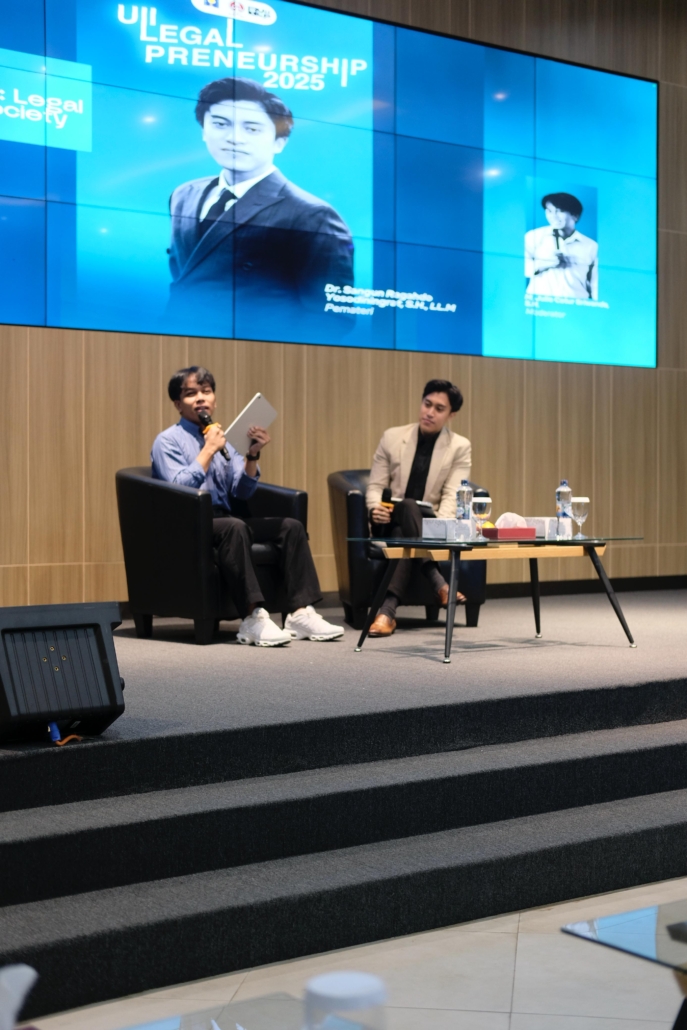
On the fourth day of UII Legalpreneurship 2025, the final Law Firm Seminar was held at the 4th Floor Auditorium of the Faculty of Law UII under the theme “Looking to the Future: Legal Skills for Careers in Society 5.0,” featuring Dr. Sangun Ragahdo Yosodiningrat, S.H., LL.M. as the speaker. He explained that in the Society 5.0 era, technologies such as AI, big data, and blockchain are transforming how the legal profession operates. Many routine tasks are becoming automated, requiring lawyers to be more adaptive, strategic, and technologically proficient. New challenges have emerged, including data privacy, digital evidence, cybersecurity, and AI regulation. Therefore, future lawyers must master legal technology literacy, cyber law, smart contracts, as well as possess strong analytical skills and digital ethics. Future lawyers are expected to think across disciplines and act as both problem solvers and innovators. To prepare for this, students, fresh graduates, and young practitioners are encouraged to develop legal tech skills, pursue certifications related to data privacy and AI ethics, expand their digital portfolios, and actively engage in the legal technology ecosystem.
The series of events concluded with a closing ceremony and symbolic closing, highlighted by a traditional Javanese dance performance by Xaviera Unisi.

